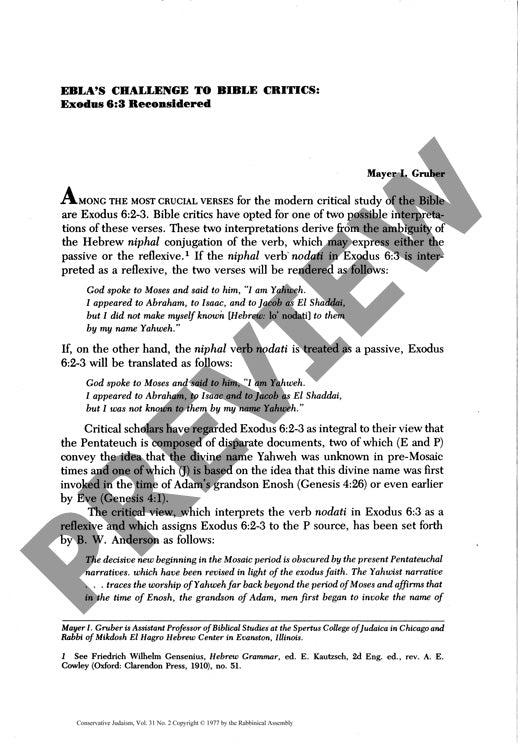Eblas Challenge to Bible Critics Exodus
Couldn't load pickup availability
Archaeological discoveries at Tell Mardikh (ancient Ebla) have upended a central pillar of biblical criticism regarding the divine name Yahweh and its historical usage. Critical scholars have long interpreted the Hebrew niphal verb *nodati* in Exodus 6:3 as evidence that the name Yahweh was unknown before Moses, using this interpretation to support the documentary hypothesis that divides the Pentateuch into separate sources. However, philological analysis of the biblical text, combined with examination of third millennium B.C.E. Eblaite personal names, reveals a different story. The Ebla tablets, discovered in 1974-1975, document extensive use of theophoric names incorporating shortened forms of Yahweh (*Ya* and *Yau*, corresponding to Hebrew *Yah* and *Yahu*) in pre-Abrahamic times. These findings align with traditional scholars like Rashi, Cassuto, and Buber, who understood Exodus 6:3 as referring not to the revelation of a new divine name, but to a deeper understanding of God's character. The evidence demonstrates that patriarchal use of Yahweh was not anachronistic, necessitating fundamental reconsideration of source-critical theories that rely heavily on the alleged anachronistic usage of the divine name in Genesis narratives.

More Information
-
Physical Description
-
Publication Information
Published
ISBN
-
Publication Credits
Mayer Gruber

